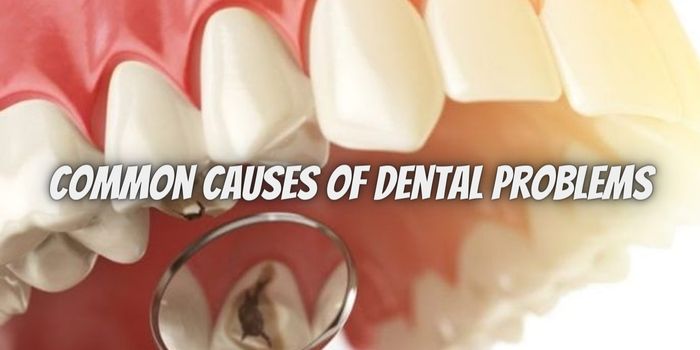Surely, developing women-like breasts can ruin your life. Are you aware that around 32-65% of men develop women-like breasts? And those of you thinking that this can be curbed with simple remedies, then know this that this is a medical condition that requires surgical intervention.
What is gynecomastia?
Gynecomastia is the condition that affects only men in which they develop women-like breasts. Due to this medical condition, the affected people tend to be susceptible to several instances of embarrassment that affects their self-esteem majorly. An interesting fact to note here is that every 1 in 4 men is affected by gynecomastia.
What are the causes of gynecomastia?
The breasts of men enlarge when there is an imbalance of hormone levels- estrogen and testosterone- in the male body. This hormonal imbalance results in either excess production of estrogen or reduced production of testosterone that results in the development of women-like breasts. Some of the common reasons that can contribute to gynecomastia are-
- Age, especially during teenage years
- Taking particular medicines such as-
-Cimetidine and proton pump inhibitors used for heartburn
-Diazepam for anxiety
-Ketoconazole for fungal infections
-Metronidazole that treats bacterial infections
-Spironolactone, digoxin, amiodarone, and calcium channel blockers
-For treating enlarged prostate, prostate cancer and others, Finasteride
-Human chorionic gonadotropin for fertility problems
-Doctors prescribed anabolic steroids and androgens that athletes take illegally for enhancing performance
-Medicines for AIDS such as Efavirenz is closely associated with gynecomastia
-Tricyclic antidepressants
-Medicines for treating cancer
-Medication for emptying the stomach as metoclopramide
- Any injury or ailment in testicles that leads to lower testosterone production
- Taking illegal drugs such as marijuana, heroin, and anabolic steroids
- Suffering from kidney failure as they are no longer to filter blood
- Suffering from a particular type of cancers including a tumor in the lungs, pituitary gland, or adrenal glands
- Problems in the thyroid gland such as hypothyroidism
- Obesity that results in fat deposition
What are the stages of gynecomastia?
The American Society of Plastic Surgeons standardized the findings of researchers of “Classification and surgical correction of gynecomastia” into the gynecomastia scale. According to this scale, there are four stages of gynecomastia-
- Grade I- Small enlargement without skin excess
- Grade IIa- Moderate enlargement without skin excess
- Grade IIb (also known as Grade III)- Moderate enlargement with minor skin excess
- Grade III (also known as the Grade IV)- Marked enlargement with excess skin, mimicking drooped of the female breast
What are the types of gynecomastia?
The following are the seven types of gynecomastia that have been identified. Normally, the doctors diagnose any of the following
- Normal gynecomastia
- Adult gynecomastia
- Pure glandular gynecomastia
- Adolescent gynecomastia
- Asymmetric gynecomastia
- Pseudo-gynecomastia
- Severe gynecomastia
What is the diagnosis of gynecomastia?
The doctor physically examines the breasts followed by feeling the nipple area to check the presence of any lump. Moreover, he/she can also ask questions related to the medical history, and family history of the patient.
Followed by this, the doctor recommends completing some hormone tests and an ultrasound examination of the breast to rule out the possibility of breast cancer. In addition to this, they can also recommend other tests such as X-Rays, CT scans and MRI scans
What is the best treatment for gynecomastia?
Here’s what happens during the liposuction procedure as well as gland excision surgery.
- Liposuction- The first step of the procedure is the administration of the anesthesia that sedates the patient. The surgeons make some incisions and put a saline solution from specific parts of the body. Next, small probes are inserted that emits ultrasound waves used to break off the fat cells. It is finished by sucking out the liquified fat throughout a tube and closes the incisions with some surgical stitches and glue.
- The Gland excision surgery- The doctor administers anesthesia before the surgery to sedate the patient. After this, the doctor makes several incisions in places where there can be minimal chances of scarring. Next, the excess tissue from the breasts and the surrounding area is removed to decrease the swelling and improve the chest contour. After the procedure completion, the surgeon closes the incisions with surgical glue or tapes.
How to prevent gynecomastia from developing?
There are preventive measures that can reduce the risk of gynecomastia developing. These measures include some lifestyle modifications, as well as dietary measures, that reduces the risk to a minimum. Some of the common measures are described below-
- Food items such as corn syrup, sugary drinks, processed juices, etc. are a big no-no as these contain added sugar that can lead to deposition of fat on the chest.
- You need to drink at least 2 liters of water on a daily basis.
- Zinc-rich foods promote testosterone production so include those in your diet. Some of these include- garlic, ginger, blueberries, egg yolks, beans, beef, shellfish, low-fat milk, etc.
- Don’t eat too much in one meal. Have three large meals with two snacks.
- Rest properly. Experts recommend sleeping for 8-9 hours so that the person is relieved of any stress that can lead to inflammation and overeating.
- On a daily basis, exercise for at least half an hour. Aim for 15 mins of cardio followed by another 15 minutes of high-intensity exercise.
- Another thing to keep in mind while exercising is that don’t overdo it. Muscles need to rest so that they can shapen properly.
Conclusion
Gynecomastia is a common condition that can develop in men. In addition to physical implications, there can be some psychological implications too. Therefore, doctors recommend undergoing the treatment of gynecomastia without any further delay. Two important things to consider for the treatment of gynecomastia are-finding a well-experienced surgery and choosing the right clinic.



